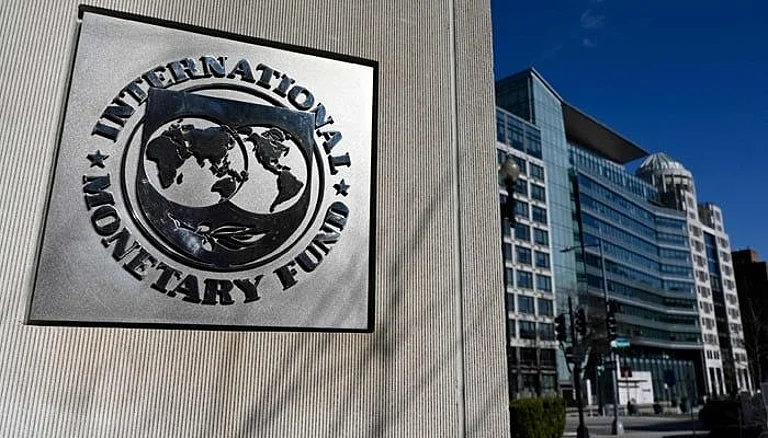A ceasefire has been announced post-Operation Sindoor that destroyed nine terrorist bases in Pakistan and Pakistan-occupied Kashmir (PoK), its air defence infrastructure and other military bases. But even under these circumstances, the International Monetary Fund (IMF) has approved a loan of $1.4bn to Pakistan from its Climate Resilience Fund, as well as an additional $1bn under the existing economic stabilisation programme of $7bn. This is an extremely worrying situation.
This action of the IMF is being condemned by one and all in India. Though we cannot say that the IMF has provided financial aid to Pakistan to wage war, there is an apprehension that this money may be misused to nurture war and terrorism. It is unfortunate that before this, the IMF has given loans to Pakistan 25 times to overcome its financial crisis.
But it seems that the audit process of the IMF, regarding utilisation of loans, either does not exist or is very weak. Whether the loan that Pakistan has received this time will be used for its intended purpose remains to be seen.
At a recent IMF meeting, India had raised concerns over bailout packages and potential misuse of the loan. Although the IMF claims its monitoring system oversees the use of loans, documents show that this depends solely on economic data provided by Pakistan, such as figures on its budget deficit. In reality, the IMF’s monitoring system may not be fully equipped to ensure that funds are not used to service loans of other countries or unrelated purposes.
Fears of Misuse
Thus, while Pakistani terrorists, armed with weapons, continue to kill innocent people, its government, too, in statements repeatedly threatens to use nuclear weapons. History bears witness that in order to create an atmosphere of fear, Pakistan keeps threatening the use of nuclear weapons after every terrorist attack to avoid retaliation.
Pakistan also has substantial foreign debt. In 2023, its external debt was $131.2bn, accounting for 37.3% of the country’s GDP. Of this, $38.8bn was debt from international institutions and loans from China were $68.9bn. Due to a severe shortage of foreign currency, Pakistan is unable to repay these loans on time, forcing it to repeatedly reschedule repayment.
Although loans to Pakistan from international agencies cannot be stopped due to diplomatic and geopolitical reasons, such loans should be extended under strict conditions
Pakistan’s credit rating (CCC+) is 18th from the bottom in the world. No institution or country in the world is willing to lend to Pakistan. But international institutions like the IMF provide loans to their member countries, including Pakistan, under certain conditions.
This is why Pakistan has been getting loans from the IMF and the World Bank repeatedly. But this time, when the loan was given to Pakistan, objections were raised not only in India but in many other countries.
It is understood that Pakistan’s army, government and other agencies have been accused of providing direct and indirect support to terrorism. In such a situation, it is natural that the money received from various sources including loans is used for terrorism and other nefarious uses.
Although loans to Pakistan from international agencies cannot be stopped due to diplomatic and geopolitical reasons, it is important to understand that Pakistan poses a grave threat to world peace and such loans should be extended under strict conditions.
So far, the IMF has granted loans on conditions such as adhering to financial discipline, through fiscal adjustments (reducing spending or increasing taxes), monetary policy adjustments, structural reforms and other measures. But in the case of a country like Pakistan, which is accused of supporting terrorism, these conditions are not sufficient.
Containing Risks
It is widely believed that terrorist groups in Pakistan exert influence over the government. It is also known that the continuation of those in power often depends on the support or approval of these groups. The presence of top officers of the Pakistani army at the last rites of terrorists killed in the Indian strikes and the burial of their bodies wrapped in the Pakistani flag further confirms this reality.
In view of this, we have to understand that if terrorists get hold of Pakistan’s nuclear arsenal, they could misuse it to pursue their objectives. Therefore, it becomes necessary that when international agencies extend loans to Pakistan, they should also bring strategically important assets—including nuclear establishments—under stricter oversight.
Since Pakistan hardly has the capacity to repay its loans, its strategic properties like Gwadar, Karachi and other ports could be kept as collateral while giving loans. Not only this, the assets of army-run groups like the Fauji Foundation and Askari Bank could also be mortgaged.
Pakistan’s defence budget can be curtailed, with an aim of fiscal discipline to weaken the Pakistani army structurally. In this way, the grip of the Pakistani army on the exchequer can also be weakened.
The dangers of nuclear attack from Pakistan and the possibility of unauthorised access to its nuclear arsenal can be eliminated by monitoring by the United Nations and the International Atomic Energy Agency (IAEA). Strict monitoring by these international agencies will also put an end to Pakistan’s repeated threats.
By curbing Pakistan, efforts to safeguard world peace can become more effective. Since Pakistan does not act like a responsible state, the methods to contain it must also be unconventional. In dealing with a terrorist state like Pakistan, adopting out-of-the-box measures is the need of the hour.
The writer is former professor, PGDAV College, University of Delhi











